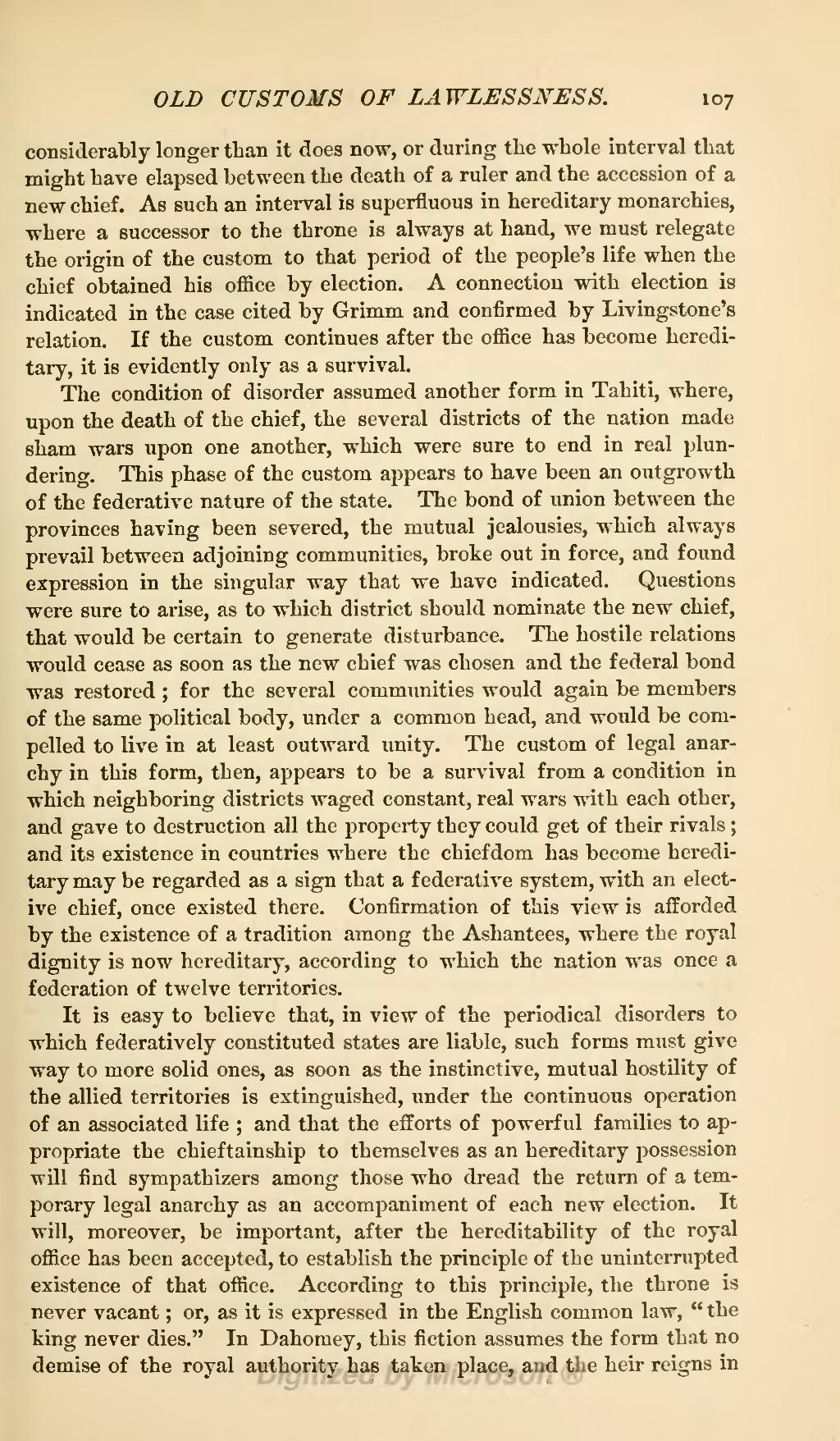considerably longer than it does now, or during the whole interval that might have elapsed between the death of a ruler and the accession of a new chief. As such an interval is superfluous in hereditary monarchies, where a successor to the throne is always at hand, we must relegate the origin of the custom to that period of the people's life when the chief obtained his office by election. A connection with election is indicated in the case cited by Grimm and confirmed by Livingstone's relation. If the custom continues after the office has become hereditary, it is evidently only as a survival.
The condition of disorder assumed another form in Tahiti, where, upon the death of the chief, the several districts of the nation made sham wars upon one another, which were sure to end in real plundering. This phase of the custom appears to have been an outgrowth of the federative nature of the state. The bond of union between the provinces having been severed, the mutual jealousies, which always prevail between adjoining communities, broke out in force, and found expression in the singular way that we have indicated. Questions were sure to arise, as to which district should nominate the new chief, that would be certain to generate disturbance. The hostile relations would cease as soon as the new chief was chosen and the federal bond was restored: for the several communities would again be members of the same political body, under a common head, and would be compelled to live in at least outward unity. The custom of legal anarchy in this form, then, appears to be a survival from a condition in which neighboring districts waged constant, real wars with each other, and gave to destruction all the property they could get of their rivals: and its existence in countries where the chiefdom has become hereditary may be regarded as a sign that a federative system, with an elective chief, once existed there. Confirmation of this view is afforded by the existence of a tradition among the Ashantees, where the royal dignity is now hereditary, according to which the nation was once a federation of twelve territories.
It is easy to believe that, in view of the periodical disorders to which federatively constituted states are liable, such forms must give way to more solid ones, as soon as the instinctive, mutual hostility of the allied territories is extinguished, under the continuous operation of an associated life: and that the efforts of powerful families to appropriate the chieftainship to themselves as an hereditary possession will find sympathizers among those who dread the return of a temporary legal anarchy as an accompaniment of each new election. It will, moreover, be important, after the hereditability of the royal office has been accepted, to establish the principle of the uninterrupted existence of that office. According to this principle, the throne is never vacant: or, as it is expressed in the English common law, "the king never dies." In Dahomey, this fiction assumes the form that no demise of the royal authority has taken place, and the heir reigns in

